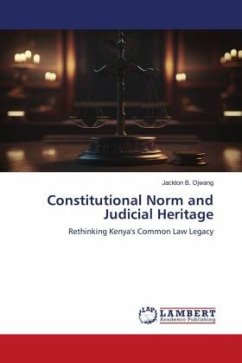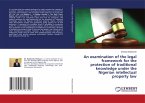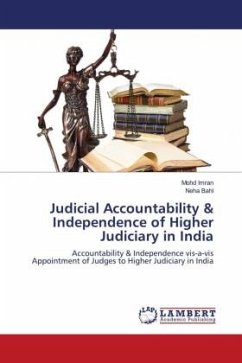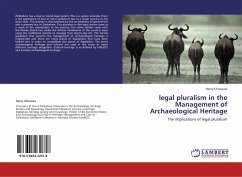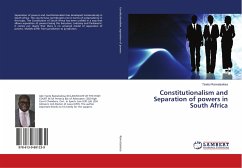IN the practice of law, and in day-to-day dispensation of justice, in a goodly number of countries, constant reference to 'the common law' is the norm. This, however, is rarely attended with a reasoned account on the relevance of the concept, in the motions of the judicial process. Still more confounding, hardly any rationalization is ever offered, regarding the place of the common law in the interpretation and application of the terms of the increasingly-popular constitutional codes - such as the Constitution of Kenya, 2010. Such is a clear deficiency in the framework of the applicable jurisprudence. The task has fallen to this book, to bridge that gap; and besides, to shed extra light on the standing of aleading contemporary legal family, the common law, in face of a codified constitution. This study depicts the progressive historical profile of the common law, and its place in the varied economic, social and political environments. The reader will be so much the better, for appreciating the fundamental reference-points in the discharge of the judicial mandate - this being so vital to the goals of constitutionalism and good governance.
Bitte wählen Sie Ihr Anliegen aus.
Rechnungen
Retourenschein anfordern
Bestellstatus
Storno

